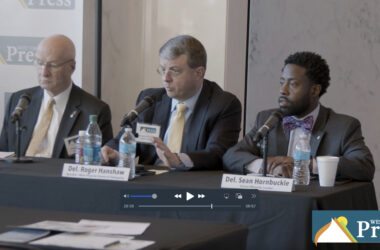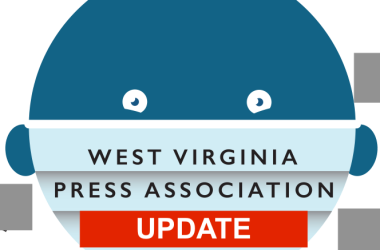WHEELING, W.Va. — A bill introduced during the West Virginia Legislature’s special session would redirect money that supports greyhound racing to fix the state’s roads, but two Northern Panhandle delegates do not believe this would fill the pothole in the State Road Fund.
Delegate Patrick Lane, R-Kanawha, introduced the legislation that would divert the money from the Greyhound Breeding Development Fund, which paid dog breeders about $5.3 million in 2015, records obtained from the West Virginia Racing Commission show. One of these breeders collected $511,932.90 from the fund last year.
Greyhounds race at both Wheeling Island Hotel-Casino-Racetrack and the Mardi Gras Casino and Resort near Charleston. Efforts to end the greyhound subsidies ultimately failed during the Legislature’s regular session earlier this year, as industry supporters emphasized the need to save the 1,700 jobs they estimate racing supports in the Mountain State.
Delegate David Evans, R-Marshall, continues pushing for more road repair, particularly in the areas near U.S. 250 between Cameron and Hundred. Still, he said stripping the money from greyhound breeders for roads would be unwise.
“I don’t think that is something I would support. It would only be a drop in the bucket for the $1 billion we need to get our roads repaired,” Evans said.
Evans said the Division of Highways has a list of about 600 road slips in District Six, which covers the Northern Panhandle, alone. He said repairing the worst of these could cost as much as $2 million each.
“This would be nothing but a drop in the bucket,” Evans said of the money that would be redirected from the greyhound breeders’ and purse funds. “It is mind-boggling how much we need to fix our roads.”
Prior to the Legislature approving video lottery in 1994, greyhound racing was the primary function of both the Wheeling and Charleston tracks. Once live poker and other forms of table gambling joined the slot machines in 2007, some in the Mountain State began to wonder if greyhound racing should continue receiving subsidies – or be allowed to continue at all.
Delegate Erikka Storch, R-Ohio, said Lane’s bill passed through the House Finance Committee for consideration by all members. Storch, who also serves as president of the Wheeling Area Chamber of Commerce, indicated she will oppose the bill.
“If you never go into the Wheeling Island track, you have never subsidized greyhound racing. It is not taking money from anything else. The money comes from bets at the track – nothing else,” Storch said. “Do we need money in our road fund? We sure do. We need plenty of road work done,” Storch said. “But this is not the way to do it.”
A related bill Lane introduced would end transfers to the Licensed Racetrack Modernization Fund, as the money would go to the state’s general fund. Storch said this modernization program helps casinos keep their slot machines up to date by allowing them to receive partial reimbursement of the money they spend for the equipment. She said she supports the program.
To read more from The Intelligencer/Wheeling News-Register, subscribe here.





